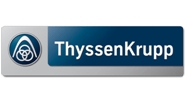Market Data

September 25, 2019
Thyssenkrupp AG Replaces CEO Kerkhoff
Written by Sandy Williams
Thyssenkrupp AG is sacking its CEO of 14 months after directors determined Guido Kerkhoff is unable to reverse declining profits at the German conglomerate. Supervisory Board Chairman Martina Merz will be interim CEO for the next 12 months while a permanent replacement is sought.
Kerkhoff succeeded Heinrich Hiesinger in July 2018. In May 2019, the company abandoned a plan to split the company in two, forming Thyssenkrupp Industrials and Thyssenkrupp Materials. A steel joint venture with Tata Steel also failed after facing regulator objections.
The latest plan by Kerkhoff was to sell all or part of the company’s prized elevator business to raise cash for the company that has had four profit warnings during Kerkhoff’s tenure. The elevator business sale is expected to move forward under the leadership of Merz.
Thyssenkrupp’s assets, spread across 78 countries, have faced a slowing auto industry, higher raw material prices and challenges from a host of trade conflicts. Thyssenkrupp shares fell approximately 18 percent this year and it is estimated that the company is losing $3 million per day.
“We expect that the new leadership will speed up the transformation process that Thyssenkrupp so urgently needs and improve the quality of implementation,” said Lars Förberg, founding partner of Cevian Capital. Cevian holds 21 percent of Thyssenkrupp shares.







